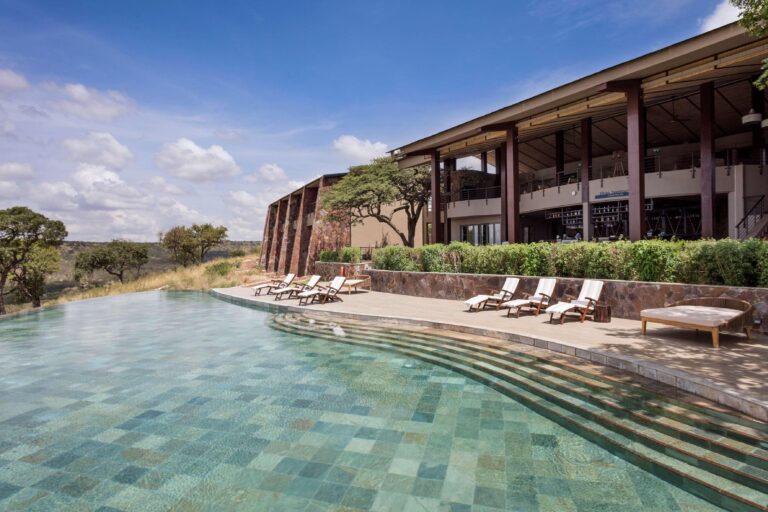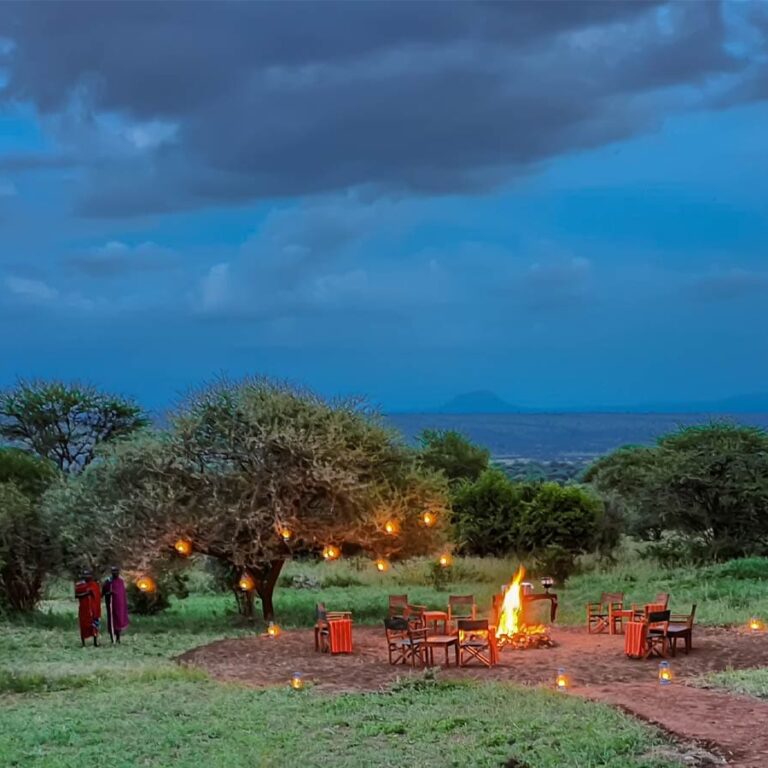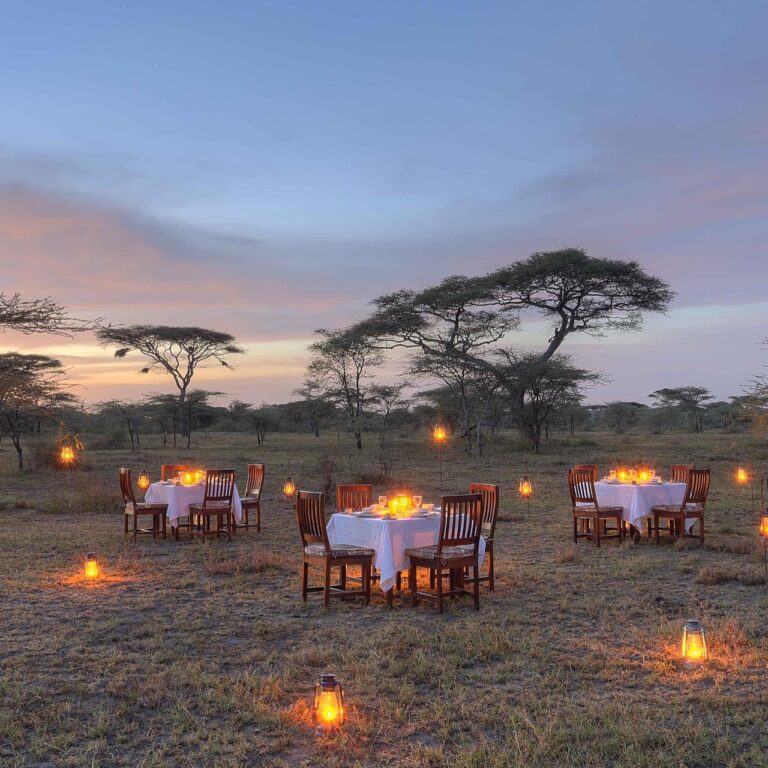The global pandemic fundamentally reshaped how we travel, shifting priorities towards safety, open spaces, meaningful experiences, and a deeper connection with nature. Emerging from the shadow of lockdowns and restrictions. Tanzania has proven to be not just a resilient travel destination but arguably the perfect choice for those navigating the complexities of post-pandemic travel and beyond. Its vast wildernesses, commitment to safety, and unique offerings perfectly align with the evolving desires of the modern traveler.
1. Vast Open Spaces and Natural Social Distancing
One of Tanzania’s most compelling attributes, especially in a world conscious of personal space, is its vast open spaces. The country is home to some of the largest and most unfragmented wilderness areas in Africa. Iconic national parks like the Serengeti, Nyerere (Selous), and Ruaha span millions of acres. Ensuring that game drives and wildlife encounters inherently offer natural social distancing. Unlike crowded urban centers, safari vehicles typically host only a few individuals. Animal sightings occur across expansive landscapes, not in confined spaces. This inherent design of a safari minimizes close contact with large groups, offering a sense of freedom and safety that is highly appealing.
2. Proactive and Adaptive Safety Protocols
Tanzania was among the first African nations to cautiously reopen its borders to international tourism. Implementing proactive and adaptive safety protocols. While specific measures evolved, the initial approach focused on health screenings upon arrival. Enhanced hygiene practices at airports, lodges, and safari vehicles, and the promotion of mask-wearing for staff. Reputable tour operators quickly adopted stringent protocols, including:
- Regular sanitization of vehicles and equipment.
- Temperature checks for guides, staff, and clients.
- Spacious seating arrangements in safari vehicles.
- Flexible booking and cancellation policies to instill confidence.
This commitment to traveler well-being. Coupled with the country’s relatively low population density in tourist areas, allowed visitors to feel secure in their chosen adventure.
3. Focus on Outdoor Activities and Nature Immersion
The pandemic highlighted the importance of fresh air and nature’s restorative power. Tanzania’s tourism is fundamentally built around outdoor activities and deep nature immersion. Whether it’s tracking lions across the Serengeti plains. Scaling the heights of Mount Kilimanjaro, or diving into the pristine waters of Zanzibar, the experiences are predominantly outdoors. This allows travelers to breathe freely, enjoy the therapeutic benefits of natural environments, and avoid enclosed, high-traffic indoor attractions. The emphasis on wildlife viewing, trekking, and beach relaxation perfectly aligns with a desire for healthy, invigorating travel.
4. Less Crowded Experiences (Initially, and Still Possible)
In the initial phases of post-pandemic travel, Tanzania offered the unique advantage of less crowded experiences. With global travel still finding its footing. Popular parks and attractions, while still active, saw reduced visitor numbers compared to pre-pandemic peaks. This translated into more exclusive game drives, greater solitude on trekking trails, and a more intimate connection with the environment. While visitor numbers are steadily increasing, strategic planning, such as visiting during the shoulder seasons or choosing less-trafficked parks (like Katavi or Ruaha). Can still provide a sense of having the wilderness largely to yourself.
5. Appreciation and Readiness of Local Communities
The travel restrictions had a profound economic impact on local communities whose livelihoods are intrinsically linked to tourism. As visitors returned, there was a palpable sense of appreciation and readiness from local communities and tourism staff. Guides, porters, lodge staff, and local artisans were eager to welcome travelers back, showcasing their resilience and genuine hospitality. This mutual gratitude often fostered deeper, more meaningful interactions between visitors and locals. Adding an invaluable human element to the travel experience. Supporting these communities through tourism became, for many, a conscious and rewarding choice.
6. A Sense of Purpose and Meaningful Travel
The pandemic prompted many to seek more purpose-driven and meaningful travel experiences. Tanzania delivers on this front. A safari is not merely a vacation. It’s an educational journey that fosters an appreciation for conservation, biodiversity, and cultural heritage. Climbing Kilimanjaro offers a profound personal challenge and a sense of triumph over adversity. Engaging with local tribes, like the Maasai or Hadzabe, provides unique cultural insights. These experiences transcend typical leisure travel. Offering a sense of purpose and creating memories that resonate far beyond the trip itself.
7. Diverse Offerings Beyond Safari
Beyond the classic game drives, Tanzania offers diverse experiences including cultural interactions, hiking, conservation-focused activities, and unique wildlife encounters like birding and predator trails. Visitors can engage with local communities, scale Mount Kilimanjaro or Mount Meru, participate in reforestation and wildlife monitoring programs, or enjoy specialized safaris like walking safaris or hot air balloon rides. While Tanzania is globally celebrated for its safaris, its appeal extends far beyond the savannah. This diversity makes it a perfect destination for varied interests and multi-generational travel.
Mountain Adventures. The iconic Mount Kilimanjaro and the challenging Mount Meru offer world-class trekking. Beach Escapes. Zanzibar’s idyllic beaches, Stone Town’s history, and the tranquil islands of Pemba and Mafia provide perfect relaxation and marine exploration. Cultural Immersion. Opportunities to visit Maasai villages, interact with the Hadzabe, or explore the bustling local markets in towns like Arusha or Moshi.
This variety means that even if parts of an itinerary needed to be adjusted due to unforeseen circumstances, there are always compelling alternatives within the country.
8. Established Infrastructure and Experienced Operators
Tanzania boasts a well-developed and mature tourism infrastructure, particularly in the northern safari circuit. This means reliable ground transport, a wide range of accommodation options (from luxury lodges to comfortable tented camps), and a cadre of highly experienced and professional tour operators and guides. This established network ensures seamless logistics, expert guiding, and robust emergency protocols – all crucial elements that contribute to a stress-free and safe travel experience, especially important when navigating uncertain times.
9. Wildlife Conservation Focus
For travelers who value conservation, Tanzania stands as a beacon. A significant portion of the country’s land area is dedicated to national parks and protected areas, reflecting a strong commitment to wildlife preservation. By visiting Tanzania’s national parks, tourists directly contribute to conservation efforts through park fees and sustainable tourism practices. This aligns perfectly with a growing desire among travelers to make a positive impact and support destinations that prioritize ecological integrity.
10. International Recognition and Gateway Connectivity
Tanzania’s status as a premier tourist destination is globally recognized. Its major international airports, Kilimanjaro International Airport (JRO) and Julius Nyerere International Airport (DAR) in Dar es Salaam, offer good international recognition and gateway connectivity to major hubs worldwide. This makes the country relatively easy to access for international travelers, facilitating the journey during times when air travel routes might still be in flux.








